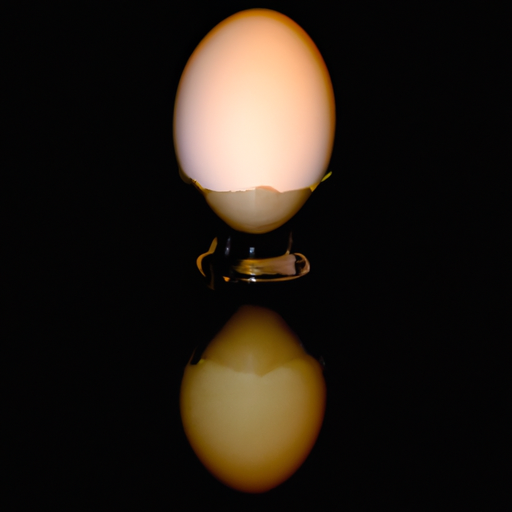Did you know that egg-laying chickens have specific mineral needs for optimal health and egg production? These feathered friends require a well-balanced diet to ensure the quality and quantity of eggs they lay. From calcium for strong eggshells to magnesium for muscle function, a range of essential minerals are necessary to support their reproductive system and overall wellbeing. In this article, we will explore the specific mineral needs that egg-laying chickens have, and why meeting these requirements is crucial for their productivity. So, let’s delve into the world of mineral nutrition for our clucky companions!
Calcium
Calcium for eggshell formation
Calcium is a vital mineral for the health and well-being of egg-laying chickens. One of its most important functions is in the formation of eggshells. Calcium is needed for the development and maintenance of strong, sturdy eggshells, which are essential for protecting the growing embryo inside the egg. Without sufficient calcium, eggshells may become thin and weak, making them prone to cracking or breaking easily.
To meet the calcium requirements for eggshell formation, it is crucial to provide a balanced diet that includes calcium-rich sources. This can be achieved through the inclusion of calcium supplements or by feeding calcium-rich foods such as oyster shells, crushed eggshells, or limestone grit. The calcium content in the diet should be properly balanced with other minerals and nutrients to ensure optimal absorption and utilization by the chickens.
Calcium deficiency
A deficiency of calcium can have detrimental effects on the health of egg-laying chickens. Calcium deficiency can lead to various issues, including soft or thin-shelled eggs, shell abnormalities, reduced egg production, and even weakened bones in the hens. In severe cases, calcium deficiency can result in egg-binding, a condition in which the egg becomes lodged inside the hen’s reproductive system, causing pain and potentially leading to serious health complications.
It is essential to address calcium deficiency promptly to maintain the health and productivity of egg-laying chickens. Regular monitoring of calcium levels in the diet, as well as regular veterinary check-ups, can help detect any potential deficiencies early on. Supplementation with calcium-rich sources, as recommended by a veterinarian or poultry nutritionist, can help overcome calcium deficiencies and maintain the well-being of the flock.
Calcium supplementation
Calcium supplementation plays a crucial role in meeting the specific mineral needs of egg-laying chickens. By providing additional sources of calcium beyond what is naturally present in the diet, supplementation ensures that hens have access to an adequate amount of this essential mineral. Calcium supplements come in various forms, including powdered or granular calcium supplements, crushed oyster shells, or ground limestone.
When selecting a calcium supplement, it is important to choose one that is formulated specifically for poultry and meets the recommended guidelines for calcium content. It is also essential to ensure that the supplement is properly stored and protected from moisture or contamination.
Supplementation should be done in consultation with a veterinarian or poultry nutritionist, who can determine the optimal dosage based on the specific needs of the flock. Regular monitoring of calcium levels and observing the performance and health of the chickens can help adjust the supplementation regimen if needed. With proper calcium supplementation, egg-laying chickens can maintain healthy eggshell formation, reproductive function, and overall well-being.
Phosphorus
Phosphorus for bone development
Phosphorus is another crucial mineral that plays a vital role in the development and maintenance of healthy bones in egg-laying chickens. Alongside calcium, phosphorus contributes to the structural integrity and strength of bones, providing support for the hens’ body weight and ensuring optimal skeletal health.
Phosphorus works in tandem with calcium to regulate bone metabolism, helping to maintain a balanced ratio between the two minerals. While calcium provides the foundation for bone structure, phosphorus aids in the formation and mineralization process, ensuring that the bones remain strong and resilient.
It is important to maintain the appropriate phosphorus levels in the diet to support bone development in egg-laying chickens. This can be achieved by feeding a well-balanced diet that includes phosphorus-rich ingredients such as bone meal, meat and bone scraps, fishmeal, or commercial feeds formulated specifically for poultry. The ratio of phosphorus to calcium should be carefully considered to ensure optimal bone health and prevent imbalances that could contribute to skeletal issues.
Phosphorus deficiency
Phosphorus deficiency can have detrimental effects on the skeletal health and overall well-being of egg-laying chickens. Insufficient phosphorus levels can lead to weakened bones, poor egg production, reduced hatchability, stunted growth, and increased susceptibility to skeletal disorders such as rickets or bone deformities. Additionally, phosphorus deficiency can negatively impact the overall growth and development of young chicks.
To prevent phosphorus deficiency, it is crucial to provide a diet that meets the specific needs of egg-laying chickens. Regular monitoring of phosphorus levels in the diet can help identify any deficiencies and allow for appropriate adjustments to be made. Offering phosphorus-rich feed sources, such as bone meal or fishmeal, can help address deficiencies and promote optimal skeletal health in the flock.
Phosphorus supplementation
Supplementing phosphorus can be necessary in cases where dietary sources may not meet the specific mineral needs of egg-laying chickens. Phosphorus supplements can help ensure that hens have access to an adequate amount of this essential mineral, promoting healthy bone development and overall skeletal health.
Phosphorus supplements typically come in the form of powdered or granular products that can be easily mixed into the chickens’ feed. It is important to choose a supplement that is formulated for poultry and meets the recommended guidelines for phosphorus content. The supplementation regimen should be established in consultation with a veterinarian or poultry nutritionist, who can determine the appropriate dosage based on the specific needs of the flock.
Regular monitoring of phosphorus levels and observation of the chickens’ performance and overall health can help assess the effectiveness of the supplementation regimen. Adjustments may be necessary to ensure that the adequate phosphorus levels are being provided to support bone development and maintain the well-being of egg-laying chickens.
By understanding the importance of phosphorus and implementing proper supplementation when needed, poultry farmers can help ensure optimal bone development, skeletal health, and productivity in their egg-laying chickens.
Sodium
Sodium for nerve function
Sodium is a crucial mineral that plays a significant role in the proper functioning of the nervous system in egg-laying chickens. It is involved in the generation and transmission of nerve impulses, allowing for efficient communication between nerve cells and ensuring smooth coordination of various physiological processes.
In the context of egg-laying chickens, sodium helps maintain the integrity and functionality of the nervous system, including the coordination of muscle movement and the regulation of organ functions. It is particularly important for the contraction and relaxation of muscles, including those involved in egg-laying and the digestive process.
Sodium deficiency
A deficiency of sodium can result in various neurological and physiological issues in egg-laying chickens. Sodium deficiency may lead to poor coordination, sluggishness, decreased appetite, reduced egg production, and impaired reproductive performance. Chickens may exhibit signs of weakness, muscle spasms, or even paralysis due to the disruption of nerve impulses.
Detecting sodium deficiencies in the flock can be challenging, as the symptoms may initially be subtle and easily overlooked. However, careful monitoring of the chickens’ behavior, appetite, and reproductive performance can help identify potential deficiencies and allow for prompt intervention.
Sodium supplementation
Supplementing sodium is essential to meet the specific mineral needs of egg-laying chickens and maintain optimal nerve function. Sodium supplements are typically available in the form of mineral blocks, salts, or electrolyte solutions, which can be provided to the chickens for free-choice consumption.
When considering sodium supplementation, it is crucial to select a product that is formulated specifically for poultry and provides an appropriate level of sodium. The supplementation regimen should be established in consultation with a veterinarian or poultry nutritionist, who can determine the optimal dosage based on the specific needs of the flock.
Additionally, it is important to ensure that the sodium supplement is properly stored and protected from moisture or contamination. Regular monitoring of sodium levels in the diet, coupled with observation of the chickens’ performance and overall health, can help assess the effectiveness of supplementation and allow for adjustments if needed.
By providing adequate sodium supplementation, poultry farmers can help maintain the proper functioning of the nervous system in egg-laying chickens, promoting overall health, productivity, and well-being in their flock.
Potassium
Potassium for muscle function
Potassium is an essential mineral for egg-laying chickens, particularly when it comes to proper muscle function. As an electrolyte, potassium assists in maintaining the balance of fluids within cells, allowing for proper muscle contraction and relaxation. It plays a crucial role in regulating the heartbeat, supporting digestive processes, and enabling the movement of various muscles within the chicken’s body.
In the context of egg-laying chickens, an optimal amount of potassium is necessary for the muscles involved in egg production, including those responsible for contracting the oviduct and expelling eggs. Adequate potassium levels also aid in the digestion and absorption of nutrients, ensuring that the chicken’s body can efficiently convert feed into energy.
Potassium deficiency
Insufficient potassium levels can have detrimental effects on the muscle function and overall health of egg-laying chickens. Potassium deficiency may lead to muscle weakness, fatigue, decreased egg production, poor digestion, and even abnormal heart rhythms. Chickens may exhibit decreased activity levels, reduced muscle coordination, or signs of muscle cramps or spasms.
Detecting potassium deficiencies in the flock can be challenging as the symptoms may initially be subtle. However, careful observation of the chickens’ performance, behavior, and overall health can help identify potential deficiencies and allow for appropriate intervention.
Potassium supplementation
Supplementing potassium is crucial to ensure the specific mineral needs of egg-laying chickens are met, particularly for optimal muscle function. Potassium supplements typically come in the form of mineral blocks, poultry-specific electrolyte solutions, or as additives in premixed poultry feeds.
When selecting a potassium supplement, it is important to choose a product that is formulated specifically for poultry and provides an appropriate level of potassium supplementation. The supplementation regimen should be established in consultation with a veterinarian or poultry nutritionist who can determine the optimal dosage based on the specific needs of the flock.
Regular monitoring of potassium levels in the diet, as well as observation of the chickens’ performance and overall health, can help assess the effectiveness of supplementation and allow for adjustments if needed. By providing an adequate amount of potassium, poultry farmers can help maintain proper muscle function, promote overall health, and maximize productivity in their egg-laying chickens.
Magnesium
Magnesium for enzyme function
Magnesium is a vital mineral that plays a critical role in enzyme function, making it essential for the overall health and well-being of egg-laying chickens. Enzymes are crucial for various biochemical reactions within the body, including digestion, energy production, and hormone synthesis. Magnesium acts as a cofactor for many enzymes, supporting their activity and ensuring their proper functioning.
In the context of egg-laying chickens, magnesium is involved in numerous physiological processes, including the metabolism of carbohydrates, fats, and proteins. It also aids in the synthesis of DNA and RNA, as well as the regulation of calcium and potassium levels within cells.
Magnesium deficiency
A deficiency of magnesium can have detrimental effects on the health and performance of egg-laying chickens. Magnesium deficiency may lead to reduced feed efficiency, poor growth rates, decreased egg production, weakened immune function, and skeletal abnormalities. Chickens may exhibit signs of muscle discomfort, irritability, reduced appetite, or even increased susceptibility to metabolic disorders.
Detecting magnesium deficiencies in the flock can be challenging, as the symptoms may overlap with other nutritional or health issues. However, regular monitoring of the chickens’ performance, behavior, and overall health can help identify potential deficiencies and allow for appropriate interventions.
Magnesium supplementation
Supplementing magnesium is necessary to meet the specific mineral needs of egg-laying chickens and ensure optimal enzyme function. Magnesium supplements are available in various forms, such as powdered or granular products that can be mixed into the chickens’ feed.
When selecting a magnesium supplement, it is essential to choose a product that is formulated specifically for poultry and provides an appropriate level of magnesium supplementation. The supplementation regimen should be established in consultation with a veterinarian or poultry nutritionist, who can determine the optimal dosage based on the specific needs of the flock.
Regular monitoring of magnesium levels in the diet, coupled with observation of the chickens’ performance and overall health, can help assess the effectiveness of supplementation and allow for adjustments if needed. By providing an adequate amount of magnesium, poultry farmers can help support enzyme function, promote overall health, and maximize the productivity of their egg-laying chickens.
Iron
Iron for oxygen transport
Iron is a vital mineral for egg-laying chickens, as it plays a crucial role in the transport of oxygen throughout the body. Hemoglobin, a protein found in red blood cells, requires iron to bind and carry oxygen from the lungs to the tissues, ensuring proper oxygenation and cellular respiration.
In the context of egg-laying chickens, a sufficient amount of iron is important for maintaining optimal egg production, growth, and overall metabolism. Iron is also necessary for the formation of myoglobin, a protein found in muscle cells that stores oxygen for energy production during muscle contractions.
Iron deficiency
Iron deficiency can have significant impacts on the health and performance of egg-laying chickens. Insufficient iron levels may lead to decreased egg production, poor-quality eggs, reduced growth rates, increased susceptibility to infections, and even anemia. Chickens may exhibit signs of lethargy, weakness, pale combs, decreased appetite, or poor feather condition.
Detecting iron deficiencies in the flock can be challenging, as the symptoms may overlap with other nutritional or health issues. However, regular monitoring of the chickens’ performance, behavior, and overall health can help identify potential deficiencies and allow for appropriate interventions.
Iron supplementation
Supplementing iron is important to meet the specific mineral needs of egg-laying chickens and ensure proper oxygen transport and metabolism. Iron supplements can come in various forms, including iron-fortified feeds, vitamin-mineral premixes, or liquid iron supplements that can be added to the chickens’ drinking water.
When selecting an iron supplement, it is essential to choose a product that is formulated specifically for poultry and provides an appropriate level of iron enrichment. The supplementation regimen should be established in consultation with a veterinarian or poultry nutritionist, who can determine the optimal dosage based on the specific needs of the flock.
Regular monitoring of iron levels in the diet, coupled with observation of the chickens’ performance and overall health, can help assess the effectiveness of supplementation and allow for adjustments if needed. By providing an adequate amount of iron, poultry farmers can help ensure optimal oxygen transport, promote overall health, and maximize the productivity of their egg-laying chickens.
Zinc
Zinc for immune function
Zinc is an essential mineral for egg-laying chickens, particularly when it comes to supporting immune function. Zinc plays a critical role in various aspects of immune response, including the development and activation of immune cells, the regulation of inflammatory processes, and the synthesis of antibodies.
In the context of egg-laying chickens, maintaining optimal immune function is crucial for preventing and combating infections, maximizing overall health, and ensuring consistent egg production. Zinc also aids in the maintenance of healthy skin, feathers, and the healing of wounds.
Zinc deficiency
Insufficient zinc levels can have detrimental effects on the immune system and overall health of egg-laying chickens. Zinc deficiency may lead to decreased immune response, increased susceptibility to infections, poor growth rates, reduced egg production, and even impaired reproductive performance. Chickens may exhibit signs of poor feather condition, increased feather picking, reduced appetite, or skin abnormalities.
Detecting zinc deficiencies in the flock can be challenging, as the symptoms may overlap with other nutritional or health issues. However, regular monitoring of the chickens’ performance, behavior, and overall health can help identify potential deficiencies and allow for appropriate interventions.
Zinc supplementation
Supplementing zinc is necessary to meet the specific mineral needs of egg-laying chickens and support optimal immune system function. Zinc supplements typically come in the form of vitamin-mineral premixes, trace mineral mixes, or liquid zinc supplements that can be added to the chickens’ drinking water or feed.
When selecting a zinc supplement, it is important to choose a product that is formulated specifically for poultry and provides an appropriate level of zinc enrichment. The supplementation regimen should be established in consultation with a veterinarian or poultry nutritionist, who can determine the optimal dosage based on the specific needs of the flock.
Regular monitoring of zinc levels in the diet, coupled with observation of the chickens’ performance and overall health, can help assess the effectiveness of supplementation and allow for adjustments if needed. By providing an adequate amount of zinc, poultry farmers can help support optimal immune function, promote overall health, and maximize the productivity of their egg-laying chickens.
Manganese
Manganese for metabolism
Manganese is a vital mineral for egg-laying chickens, as it plays a crucial role in various metabolic processes within the body. Manganese acts as a cofactor for many enzymes involved in the metabolism of carbohydrates, amino acids, and lipids. It aids in the synthesis of essential compounds and facilitates the conversion of nutrients into energy.
In the context of egg-laying chickens, an optimal amount of manganese is necessary for maintaining proper metabolic function, supporting growth, and ensuring overall health. Manganese is also involved in the production of collagen, a protein necessary for the development and maintenance of connective tissues.
Manganese deficiency
A deficiency of manganese can have detrimental effects on the metabolic processes and overall health of egg-laying chickens. Manganese deficiency may lead to poor growth, reduced egg production, decreased hatchability, skeletal abnormalities, and impaired connective tissue development. Chickens may exhibit signs of poor feather condition, decreased appetite, skeletal deformities, or joint issues.
Detecting manganese deficiencies in the flock can be challenging, as the symptoms may overlap with other nutritional or health issues. However, careful monitoring of the chickens’ performance, behavior, and overall health can help identify potential deficiencies and allow for appropriate interventions.
Manganese supplementation
Supplementing manganese is essential to meet the specific mineral needs of egg-laying chickens and ensure optimal metabolic function. Manganese supplements typically come in the form of vitamin-mineral premixes or trace mineral mixes, which can be added to the chickens’ feed.
When selecting a manganese supplement, it is important to choose a product that is formulated specifically for poultry and provides an appropriate level of manganese enrichment. The supplementation regimen should be established in consultation with a veterinarian or poultry nutritionist, who can determine the optimal dosage based on the specific needs of the flock.
Regular monitoring of manganese levels in the diet, coupled with observation of the chickens’ performance and overall health, can help assess the effectiveness of supplementation and allow for adjustments if needed. By providing an adequate amount of manganese, poultry farmers can help support optimal metabolic function, promote overall health, and maximize the productivity of their egg-laying chickens.
Copper
Copper for eggshell pigmentation
Copper is a vital mineral for egg-laying chickens, particularly when it comes to eggshell pigmentation. Copper plays a critical role in the synthesis of melanin, a pigment responsible for the coloration of eggshells. Adequate copper levels ensure the proper formation and deposition of melanin, resulting in eggs with vibrant and attractive shell color.
In the context of egg-laying chickens, maintaining optimal copper levels is important for ensuring consistent eggshell pigmentation, which can be desirable for marketing and consumer preferences. Copper also contributes to various physiological processes, including iron metabolism, immune response, and connective tissue development.
Copper deficiency
Insufficient copper levels can have detrimental effects on eggshell pigmentation and overall health of egg-laying chickens. Copper deficiency may result in eggs with pale or uneven shell color, reduced hatchability, poor feather condition, decreased immune response, and impaired connective tissue development. Chickens may exhibit signs of poor growth, reduced appetite, lethargy, or increased susceptibility to infections.
Detecting copper deficiencies in the flock can be challenging, as the symptoms may overlap with other nutritional or health issues. However, regular monitoring of the chickens’ performance, behavior, and overall health can help identify potential deficiencies and allow for appropriate interventions.
Copper supplementation
Supplementing copper is important to meet the specific mineral needs of egg-laying chickens and maintain optimal eggshell pigmentation. Copper supplements typically come in the form of vitamin-mineral premixes or trace mineral mixes, which can be added to the chickens’ feed.
When selecting a copper supplement, it is important to choose a product that is formulated specifically for poultry and provides an appropriate level of copper enrichment. The supplementation regimen should be established in consultation with a veterinarian or poultry nutritionist, who can determine the optimal dosage based on the specific needs of the flock.
Regular monitoring of copper levels in the diet, coupled with observation of the chickens’ performance and overall health, can help assess the effectiveness of supplementation and allow for adjustments if needed. By providing an adequate amount of copper, poultry farmers can help ensure optimal eggshell pigmentation, promote overall health, and maximize the productivity of their egg-laying chickens.
Iodine
Iodine for thyroid function
Iodine is a crucial mineral for egg-laying chickens, as it plays a vital role in the proper functioning of the thyroid gland. The thyroid gland relies on iodine to produce thyroid hormones, which are essential for regulating various physiological processes, including metabolism, growth, and reproductive function.
In the context of egg-laying chickens, maintaining optimal iodine levels is crucial for ensuring proper thyroid function, supporting consistent egg production, and promoting overall health and well-being. Iodine is particularly important for the development and function of the reproductive organs, including the oviduct, which plays a crucial role in the production and transport of eggs.
Iodine deficiency
Insufficient iodine levels can have detrimental effects on the thyroid function and overall health of egg-laying chickens. Iodine deficiency may lead to decreased egg production, poor hatchability of eggs, reduced growth rates, impaired reproductive performance, and even goiter formation. Chickens may exhibit signs of lethargy, weight loss, poor feather condition, or reproductive disorders.
Detecting iodine deficiencies in the flock can be challenging, as the symptoms may overlap with other nutritional or health issues. However, regular monitoring of the chickens’ performance, behavior, and overall health can help identify potential deficiencies and allow for appropriate interventions.
Iodine supplementation
Supplementing iodine is essential to meet the specific mineral needs of egg-laying chickens and ensure optimal thyroid function. Iodine supplements typically come in the form of vitamin-mineral premixes or inorganic iodine salts, which can be added to the chickens’ feed.
When selecting an iodine supplement, it is important to choose a product that is formulated specifically for poultry and provides an appropriate level of iodine enrichment. The supplementation regimen should be established in consultation with a veterinarian or poultry nutritionist, who can determine the optimal dosage based on the specific needs of the flock.
Regular monitoring of iodine levels in the diet, coupled with observation of the chickens’ performance and overall health, can help assess the effectiveness of supplementation and allow for adjustments if needed. By providing an adequate amount of iodine, poultry farmers can help support optimal thyroid function, promote overall health, and maximize the productivity of their egg-laying chickens.
In conclusion, meeting the specific mineral needs of egg-laying chickens is crucial for their overall health, egg production, and well-being. Calcium and phosphorus are vital for eggshell formation and bone development. Sodium and potassium play key roles in nerve and muscle function, respectively. Magnesium supports enzyme function, iron aids in oxygen transport, while zinc contributes to immune function. Manganese is essential for metabolism, copper is necessary for eggshell pigmentation, and iodine is crucial for thyroid function. By providing a balanced diet and proper supplementation when necessary, poultry farmers can ensure that their egg-laying chickens receive the essential minerals they need for optimal health, productivity, and egg quality.




